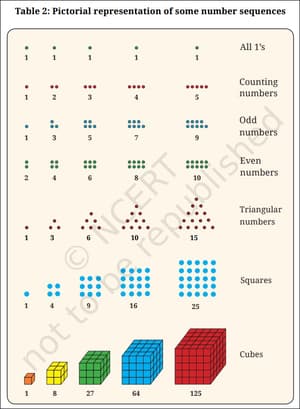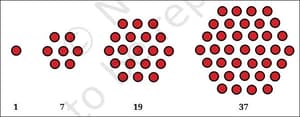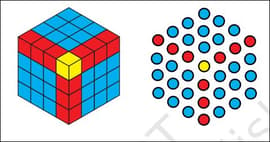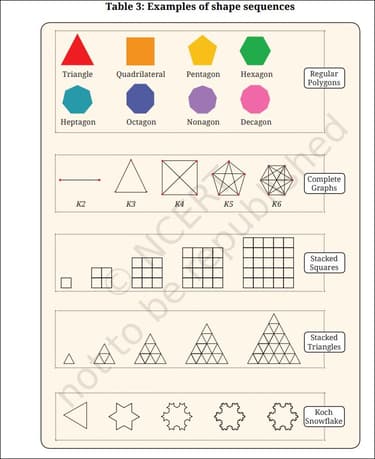MEDIUM
6th CBSE Latest Syllabus
IMPORTANT
Earn 100
Copy the pictorial representations of the number sequences in Table in your notebook, and draw the next picture for each sequence!



Important Questions on Patterns in Mathematics
EASY
6th CBSE Latest Syllabus
IMPORTANT
EASY
6th CBSE Latest Syllabus
IMPORTANT
EASY
6th CBSE Latest Syllabus
IMPORTANT
What would you call the following sequence of numbers

That’s right, they are called hexagonal numbers! Draw these in your notebook. What is the next number in the sequence
EASY
6th CBSE Latest Syllabus
IMPORTANT
EASY
6th CBSE Latest Syllabus
IMPORTANT
EASY
6th CBSE Latest Syllabus
IMPORTANT
What happens when you start to add up hexagonal numbers, i.e., take Which sequence do you getCan you explain it using a picture of a cube

EASY
6th CBSE Latest Syllabus
IMPORTANT
Find your own patterns or relations in and among the sequences in Table Can you explain why they happen with a picture or otherwise

EASY
6th CBSE Latest Syllabus
IMPORTANT
Can you recognise the pattern in each of the sequences in Table

